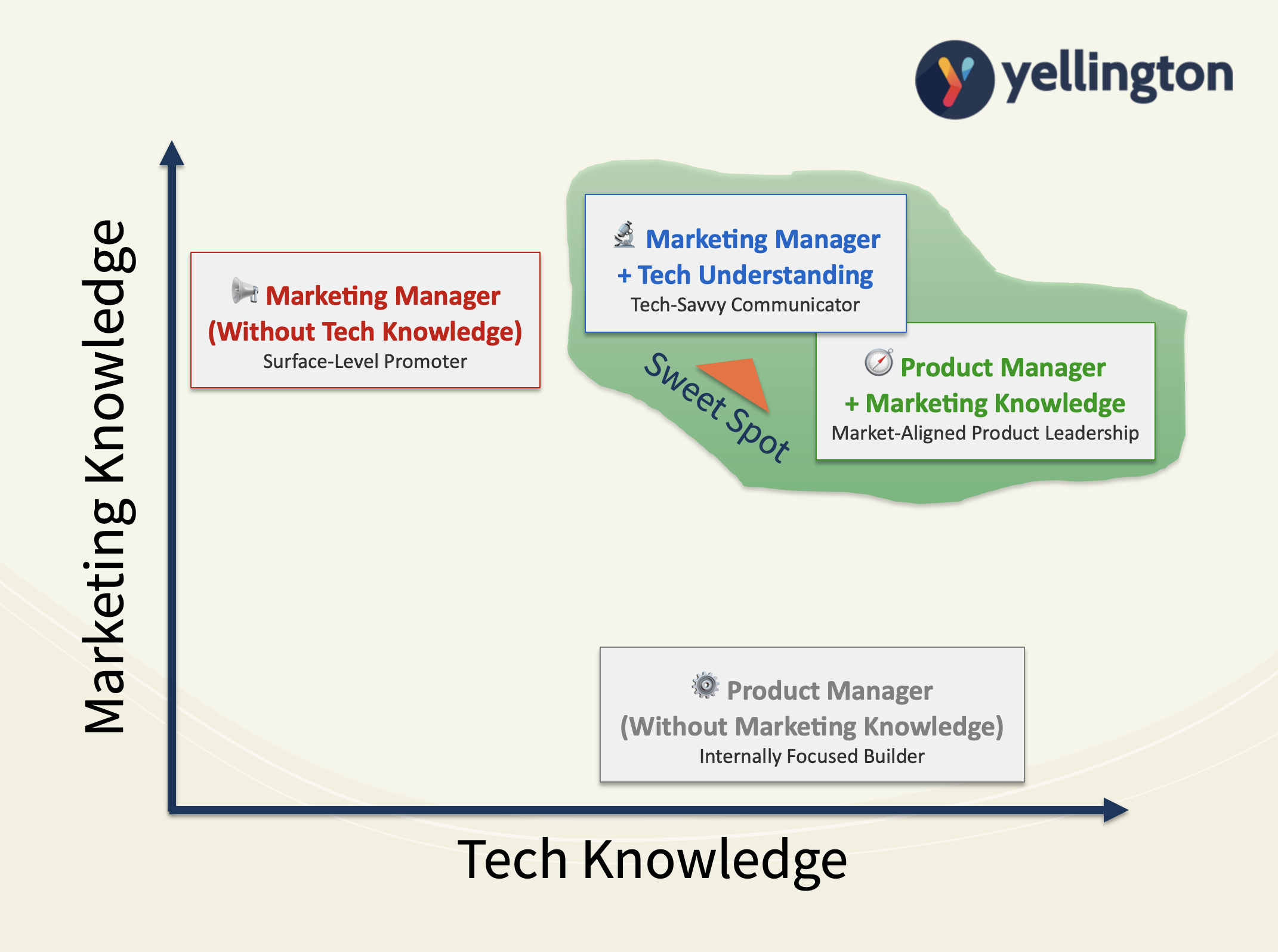At Yellington, we strongly believe in continuous competence development for all our employees. You can certainly develop your skills naturally within your expertise area (for example, developing marketing skills if you’re a marketing professional or deepening your technological knowledge if you’re a product manager). But equally important is acquiring knowledge outside your immediate professional realm, which is known as ”cross-skilling.”
Here’s why this will allow you to be more effective.
Why a product manager should be knowledgeable in marketing
- Customer-centric decision making
- Better understanding of target audiences, market needs, and pain points.
- Helps ensure product features align with real customer demand rather than internal assumptions.
- Stronger value proposition & positioning
- Ability to shape the product narrative early in development.
- Ensures differentiation in competitive markets.
- Efficient go-to-market strategy
- Product managers can collaborate seamlessly with marketing on launches.
- Prevents misalignment between what the product does and how it is communicated.
- Improved stakeholder communication
- Easier to bridge conversations with sales, marketing, and executives.
- Ability to translate technical details into business/market impact.
- Data-driven prioritization
- Knowledge of market sizing, segmentation, and customer acquisition metrics supports better prioritization in the product roadmap.
Why a marketing manager should have a fair amount of technology understanding
- Smarter campaign execution
- Awareness of product functionality prevents overpromising or misrepresenting capabilities.
- Enables more accurate and compelling messaging.
- Stronger collaboration with product & engineering
- Tech literacy allows marketing managers to ask the right questions and understand technical constraints.
- Builds credibility with product and development teams.
- Leveraging marketing technology
- Understanding of tools like CRM, automation platforms, analytics, and AI improves efficiency and targeting.
- Bridges data insights with campaign strategy.
- Better customer engagement
- Ability to explain product benefits with technical accuracy in customer-facing content.
- Helps marketing craft educational, trust-building content (e.g. explainer videos, whitepapers).
- Strategic influence in innovation
- Can identify market opportunities tied to emerging technologies.
- Provides valuable input into future product directions by connecting customer demands with technological feasibility.
In short:
- Product managers with marketing knowledge ensure the product fits the market.
- Marketing managers with tech knowledge ensure the market understands the product.


